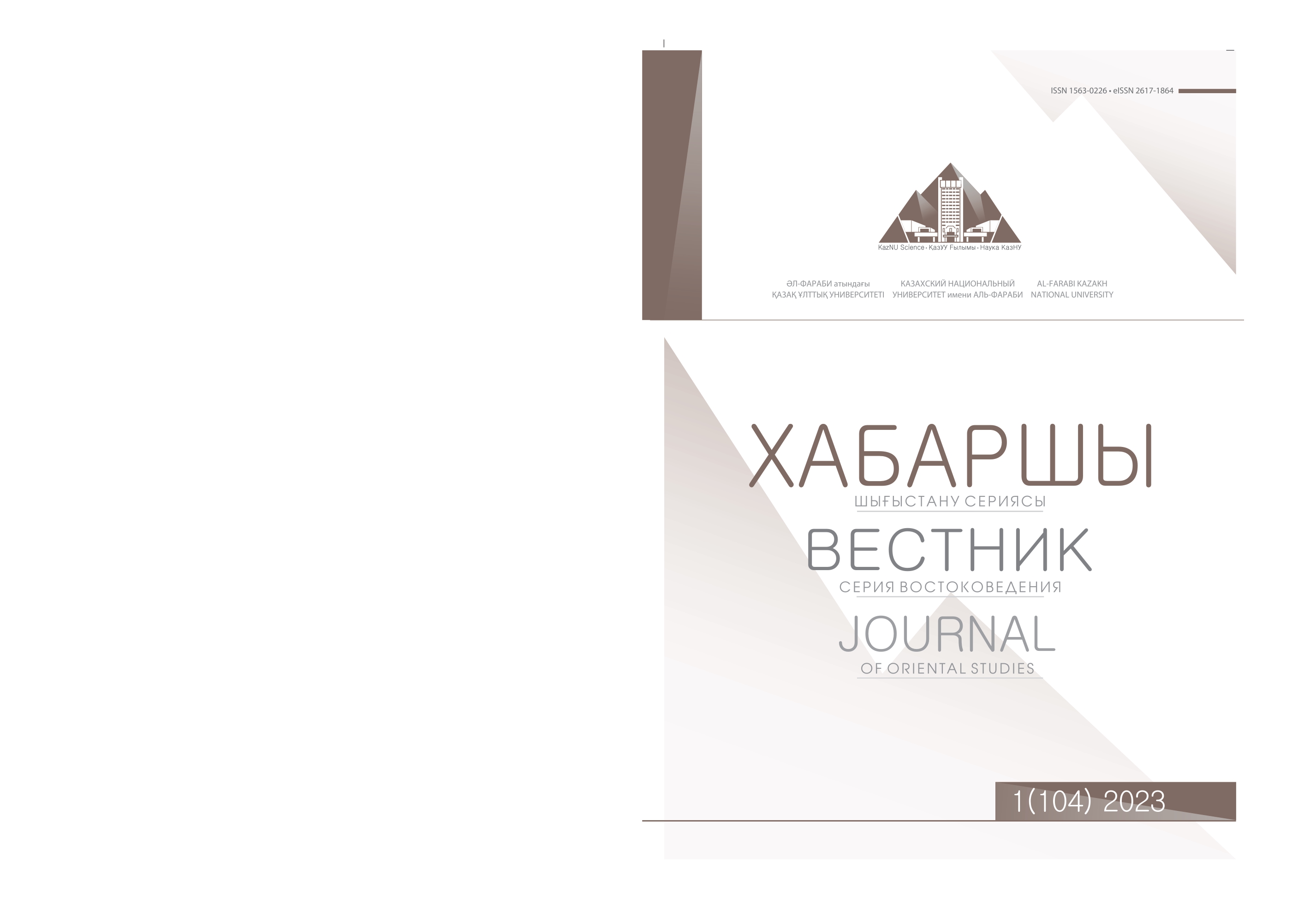RELIGIOUS AND PHILOSOPHICAL CONTEXT IN THE CREATIVE HERITAGE OF THE GREAT REPRESENTATIVES OF KAZAKH AND INDIAN CULTURE (SHAKARIM, IQBAL)
DOI:
https://doi.org/10.26577/JOS.2023.v104.i1.010Abstract
The article is devoted to the identification and analysis of the religious and philosophical context in the creative heritage of two great representatives of national cultures (Kazakh and Indian) - Shakarim and Iqbal. Despite the achievements of the scientific and technological revolution, human society today is experiencing a social and moral crisis with a change in spiritual values and moral guidelines. And more than ever, the appeal to the foundations of traditional culture and the traditional worldview, to eternal values, takes on special relevance and significance. The main idea of the study is to comprehensively study the foundations of spirituality in the traditional picture of the world of the Kazakh and Indian peoples in the aspect of religious and philosophical syncretism. The role of religious and philosophical ideas in the formation of a system of moral and ethical orientation of society is determined. The degree of proximity of the Turkic and Indian civilizations, which at first glance seem far from each other, and the achievements that form the spiritual and moral structure of the traditional worldview are analyzed. The religious and philosophical aspect of the creative heritage of the great thinkers of the Kazakh and Indian peoples today acquires a new meaning and significance, playing an important role in the spiritual life of mankind. Both Kazakh and Indian thinkers attached great importance to spirituality, which will return a person’s faith in his own strength, eliminate social apathy and the hopelessness of the masses, turn individual and public consciousness to spiritual values, and the individual to creative activity for his own and public good.
Key words: thinkers, spirituality, moral perfection, religious and philosophical syncretism.














